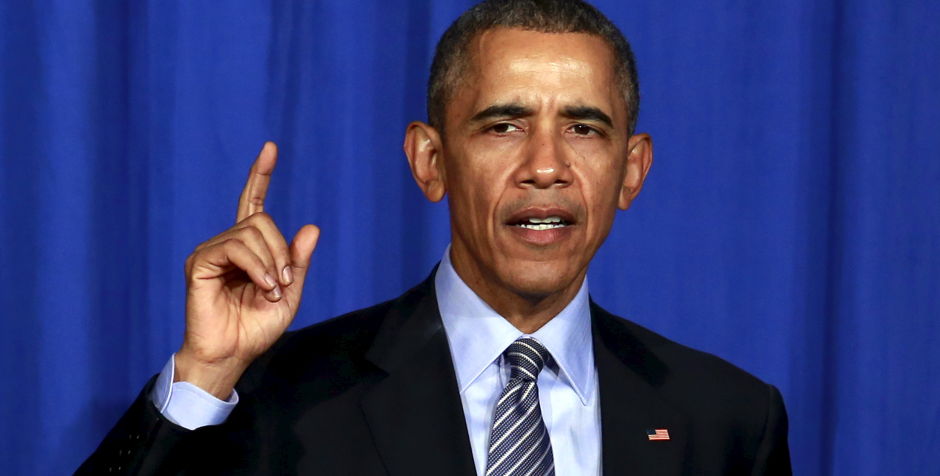VICTORY: Fifth Circuit Delivers Another Loss to President’s Executive Overreach
Impatient presidents don’t get to unilaterally rewrite the law. A three judge panel of the U.S. Court of Appeals for the Fifth Circuit has ruled that President Obama’s Executive overreach that unilaterally rewrote the law without Congressional consent is unconstitutional, unlawful, and violates the separation of powers.
Nearly one year ago, I made this exact same argument when testifying before the House Judiciary Committee.
For the past year, we have filed numerous amicus briefs in multiple federal courts standing up for the Constitution and standing against Executive overreach on behalf of over 100,000 concerned Americans and dozens of Members of Congress.
In total, we represented 113 Members of Congress—25 U.S. Senators led by both Sen. Cornyn and Sen. Cruz from Texas in addition to 88 members of the House of Representatives led by Judiciary Committee Chairman Bob Goodlatte and former Judiciary Committee Chairman Lamar Smith. You can read the entire brief and the entire list of Members of Congress here.
At every stage and in every court, federal judges have agreed with our core arguments in our briefs, urging the court to do the right thing and strike down President Obama’s overreach. As our brief argued:
“The States are likely to succeed on the merits of their constitutional claim because the DHS directive violates the Constitution, impermissibly disrupts the separation of powers, and amounts to an abdication of the Executive’s constitutional and statutory duties. Appellants unconstitutionally legislated by creating a categorical, class-based program not supported by law or established congressional immigration policy.”
Why? Because President Obama can’t simply use his unelected bureaucratic agencies to rewrite our nation’s laws when Congress chooses not to do so themselves. This responsibility resides with Congress, not the President.
That is a core principle of our Constitution, enshrined by our Founding Fathers to ensure our republic is representative of the people and protective of their freedoms.
Yesterday, a three judge panel of the Fifth Circuit Court of Appeals - with a vote of 2-1 – agreed with the 26 U.S. states challenging the Executive action and our brief defending the Constitution.
The decision upheld the injunction against President Obama’s Executive action, ruling “[W]e affirm the preliminary injunction because the states have standing; they have established a substantial likelihood of success on the merits of their procedural and substantive APA claims; and they have satisfied the other elements required for an injunction.” (p. 2)
The court went on to hold that the Obama Administration was issuing Executive directives contrary to the laws on the books in a way that is neither constitutionally nor statutorily permissible.
“At its core, this case is about the Secretary’s decision to change the immigration classification of millions of illegal aliens on a class-wide basis. The states properly maintain that DAPA’s grant of lawful presence and accompanying eligibility for benefits is a substantive rule that must go through notice and comment, before it imposes substantial costs on them, and that DAPA is substantively contrary to law." (p. 42)
The Obama Administration and its allies continue to claim that what they have done is permissible. But the court ruled that it is such a substantial change in our nation’s immigration laws that Congress would have assigned that ability explicitly to a bureaucratic agency if they had wanted it to rewrite the law in such a way.
“The interpretation of those provisions that the [Obama Administration] advances would allow him to grant lawful presence and work authorization to any illegal alien in the United States—an untenable position in light of the INA’s intricate system of immigration classifications and employment eligibility.” (p. 62)
Further court directly takes on President Obama’s – and the dissent’s – mischaracterization of what this entire case is about:
The main thrust of the dissent could be summarized as claiming that “[i]t’s Congress’s fault.” The President apparently agrees: As explained by the district court, “it was the failure of Congress to enact such a program that prompted [the President] . . . to ‘change the law.’”
The dissent’s insistent invocation of what it perceives as Congress’s inadequate funding is regrettable and exposes the weakness of the government’s legal position. . . .
The facts, not commentary on political decisions, are what should matter. Thus the dissent’s notion that “this case essentially boils down to a policy dispute” far misses the mark and avoids having to tackle the hard reality―for the government―of existing law. (p. 65)
That was the core of our argument. This case isn’t about immigration policy preferences. It is about the law. It is about upholding our Constitution against an imperial presidency.
House Judiciary Chairman Bob Goodlatte (who we represented on our brief) stated, “Today's decision from the federal appeals court is a victory for the Constitution and the American people. President Obama's decision to ignore the limits placed on his power and act unilaterally to rewrite our nation's immigration laws is an affront to the Constitution."
This is a huge victory for states and citizens across America. And an important victory for the U.S. Constitution. But regardless of one’s view on our broken immigration system and the need for reform, this victory is bigger than that even. This victory goes beyond single issues and to a core principle of our republic – the President cannot unilaterally change the law when Congress doesn’t do whatever he wants.
The Obama Administration has already announced that it will take this fight to the Supreme Court. We will be there ready to defend the Constitution on behalf of all of you and Members of Congress.
